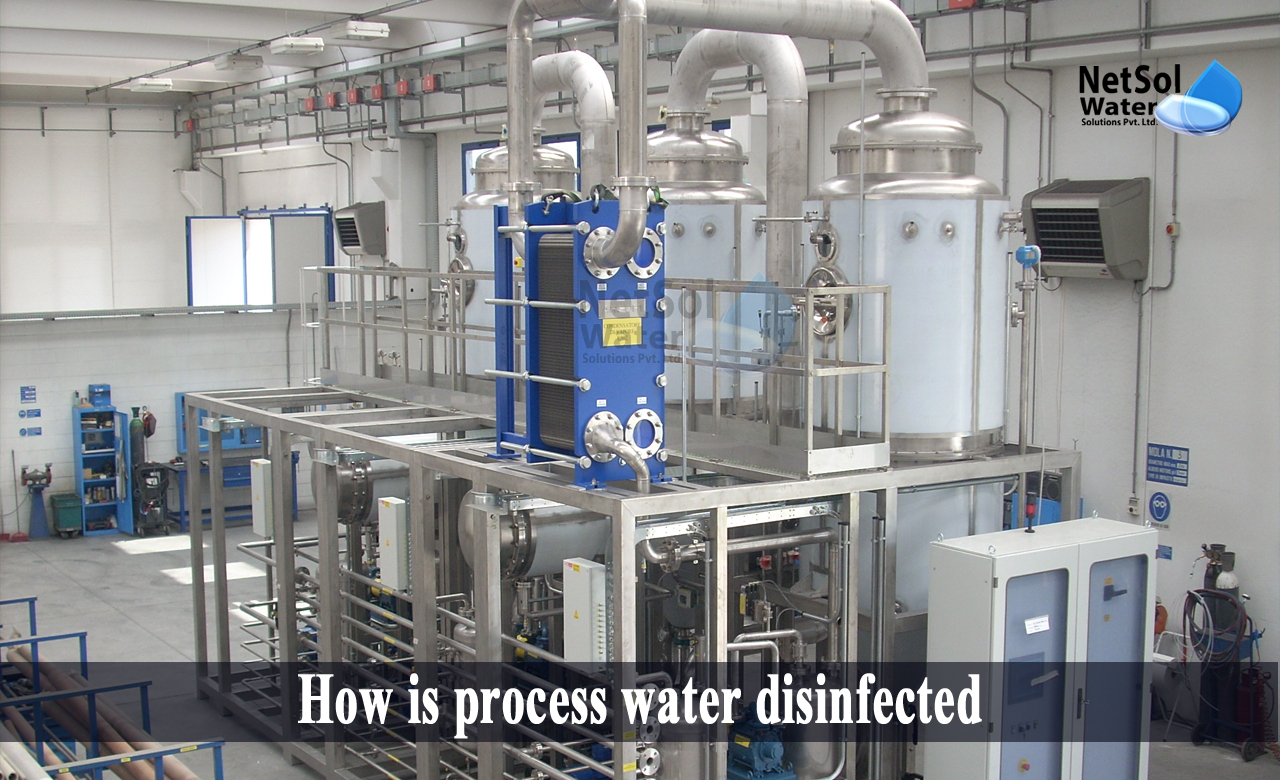What is process water?
Process water is water used in a variety of manufacturing processes, such as boiler make-up water, cooling tower make-up water, coating and plating, rinsing and spraying, washing, and many more. Municipal or ground water supplies frequently contain dissolved minerals, which can cause a slew of issues affecting product quality and manufacturing costs.
What will happen if the process water is not clean enough?
Dissolved minerals in process water can cause streaking, fouling, spotting, and adhesion interference, among other issues. Poor quality process water may also result in higher energy expenses.
Demineralized process water, for example, will result in a significant reduction in boiler fuel consumption, when compared to untreated process water, allowing the boiler to work at much higher concentration cycles, and significantly lowering the blowdown of extremely hot water into the drain.
How is process water disinfected?
UV technique for process water disinfection
While, complete bacterial removal in high purity water systems is extremely desirable, it is all but unachievable with today's technologies. It can, at most, be limited and its spread minimized. While very effective, disinfectants such as ozone or chlorine cannot be used in high purity water treatment, unless as part of periodic cleaning and disinfection regimes.
Exposing bacteria to light with wavelengths in the UV range of 200-300 nanometres, decreases bacterial growth by modifying cellular physiology in a way that inhibits or prohibits cellular reproduction.
How does a UV treatment system function?
Ultraviolet light, which can be found on the electromagnetic spectrum between visible light and X-rays, can be used to kill microorganisms in water, such as bacteria.
UV rays must be able to penetrate and pass through the bodies of microorganisms in water, for UV treatment systems to function. UV radiation affects the DNA of microorganisms, stopping them from reproducing, while simultaneously ensuring that the water is not chemically affected.
When organisms are exposed to substantial doses of UV radiation in the 200-300 nm regions, DNA and RNA molecules absorb the UV. UV radiation absorption results in the production of dimers along the DNA strands.
Ultraviolet disinfection systems typically employ thin cylindrical bulbs, capable of producing narrow band wavelength UV light in the 254 nm range, which are located near high-purity glass tubes through which the water runs.
UV Disinfection Design Specifications for Successful Functioning
At the stated flow-rate, the unit must be sized to provide enough dose. The treated water must be devoid of turbidity (sediment), iron, manganese, and any colorant, which could interfere with the transmission of the 254 nm UV radiation. The specifications of the manufacturer should be followed.
Numerous design and service considerations are involved, such as pre-treatment of the water upstream of the UV, UV system sizing, over-temperature during no-flow periods, UV intensity monitoring, downstream filtration, and many others.
Conclusion
Ultraviolet light-based industrial water filtration systems have been shown to be a cost-effective means, of eliminating microbiological contamination in water. UV, like process water disinfection, is becoming more widespread for disinfection across a wide range of applications and industries, including
• Recycling of water (recirculation loops)
• Water discharge (Wastewater)
• Water for cooling
• Water for rinsing
How do we assist?
Netsol Water has always assisted in the resolution of hundreds of water-related process challenges, through the use of a wide range of specialized water treatment technologies. We can collaborate with you to create a specific water treatment solution that meets your demands, as well as an on-going service plan to maintain your system completely or partially.



